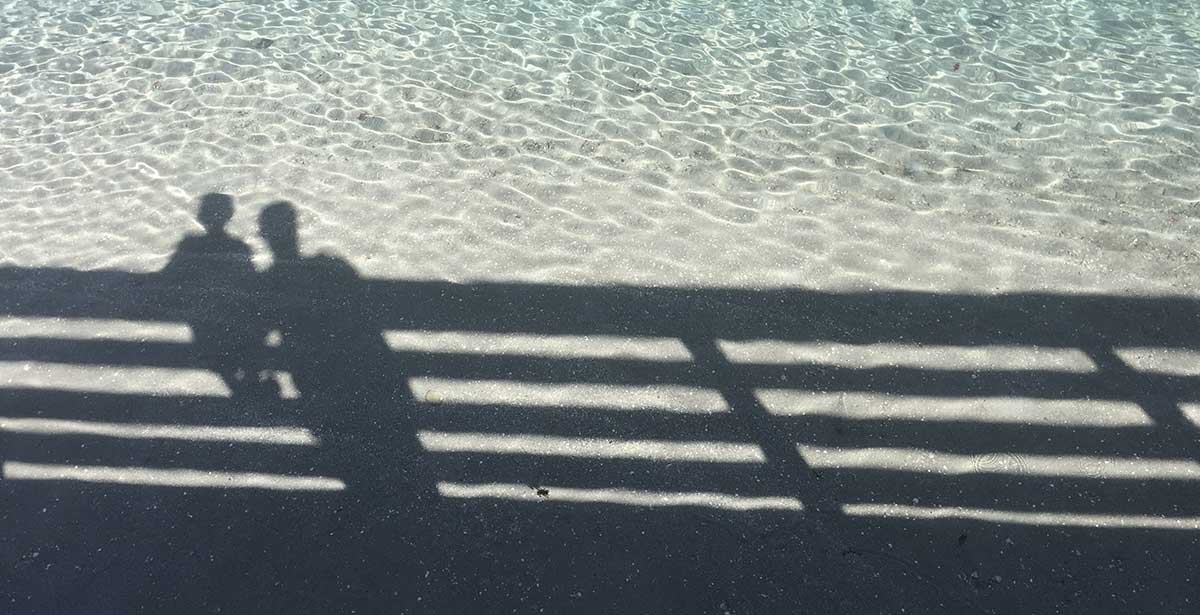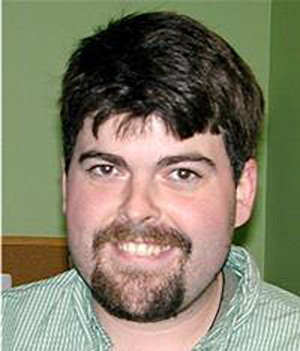NOT ANOTHER TV DAD
★ ★ ★ ★
MY FATHER

Image by Steve Shreve
By CL Bledsoe
My father is in hospice. He’s 97, and his body is just running down. The last time I saw him I barely recognized him. The man I grew up with was vibrant and rebellious. Now, he’s quiet and docile. Whereas once, he commanded court, the jester king of the farm, now, he sits and copies crossword answers from the day before or naps.
When I was growing up, my father worked harder than anyone I’ve known. He was a rice and catfish farmer. He would take me with him to work the fields or feed the fish. It was exhausting work, especially for a kid. Shoveling mud into rushing water in 100+ degree Fahrenheit heat. Rice farming involves the control of water. Once the rice has grown to a certain height, the field is sectioned off with levees. Water moves between the levees through spillways. Much of the work involves cutting spillways or plugging spots where the levees have broken. This involves carrying a shovel and several spills (plastic tarps connected to shafts of wood to weigh them down.) So you have to wade through the mud in the heat, carrying several spills, and then cut a hole or plug a hole. My father would make his rounds and then come back to the truck and down a Budweiser like he was drinking water.
My father drank hard. In the evenings, uncles, farmhands, friends, and my father would gather in the Fish Shack, where we sold fish. They would tell jokes and drink. I would hang out there because I had no way home other than to walk, and as a kid, I was afraid of walking home in the dark. Also, my mother was at home. She had Huntington’s Disease, something like a cross between Alzheimer’s and Parkinson’s, and her behavior could be erratic. She was not really capable of being a mother at that point. She had lost much of her faculties, her memory, and control of her body, and she would sometimes scream, I imagine because of the pain she was in. It was harrowing to be home alone with her while she screamed for long minutes at a time. I would try to get my father to come home with me, but he never wanted to leave. I think he was just as afraid of going home as I was. I think that was why he drank.
My father was a great practical joker. He and his friends would take out ads in the local paper about each other. One friend found a bear trap on his land, and my father took out an ad for three-legged dogs for sale. They would wire each other’s trucks so they’d shock the person starting them. Once, my father bet a much younger man that he could beat him in a footrace wearing rubber boots (while the other man wore regular tennis shoes), and he won. At the Fish Shack, customers were prepared for jokes. Sometimes, a customer would bring a harmonica or a guitar and play. My father and uncles raised greens in a nearby plot, and customers were encouraged to pick them for themselves.
The greatest practical joke was my father’s mongoose. He and an uncle and my brother would be filleting fish for a customer, and my father would innocently ask my uncle if he’d fed the mongoose that day. My uncle would say that no, he had forgotten. Then they’d let it go. Pretty soon, a customer would ask about it, and my dad would talk about how mongooses hunted cobras, and really build up the viciousness of the animal. He’d lament having to feed it when it was probably riled up and angry from hunger. The customer would ask to see it, then, usually. Many times, the other customers were in on the act and would encourage him. My father would then produce a wooden box. Maybe four feet long and a couple of feet high. The front part of the box was open and covered in chicken wire, with some fake plants like you might see in a fishbowl. There was a doorway from the covered back half to the front half. The top of the box had a latch. My father would say that was going to try to coax it to come out, but he was scared of it. Someone had given them the mongoose and he didn’t much like it because it was so aggressive. The customer would be all in at this point, leaning in close to see it. My father would open the latch and reach in to coax the mongoose. He would then yell and say it bit him, and he’d let go of the lid. The lid had a spring attached, and attached to the top inside of the box was a tennis ball covered in fur on a string. So, the “mongoose” would fly out a few feet. The customer would scream, and the other customers that were in on it would all laugh.
My daughter stayed with me during spring break last week, and I was thinking about my relationship with my father versus my relationship with her. When I’m with my daughter, she’s my main focus. I don’t drink around her, not even a beer or glass of wine. We play video games or go to museums or the zoo. We read together. I spend time with her. I ask her how she’s doing. I talk through her feelings with her. When I have to chastise her, I make sure she understands the reason, and that it’s not just because I’m in a bad mood.
My father was not emotionally available. When I needed him most, to process my grief, he was usually drunk and mean. I take a lot more interest in my daughter. But I do remember those long mornings feeding the fish or driving to the rice fields. He would pull over and drive on the shoulder because he drove so slowly, other cars would honk at him. We didn’t talk about much, but he did spend time with me.
When I was growing up, I don’t think my father knew what to do with me. He would take me to deer camp or fishing, and I never enjoyed either. When I was a teenager, I was in a band and wrote, and he never read anything I wrote or listened to my music. He understood working and telling stories, but he didn’t really care for the stories I told. He told me once about how, when I was a baby, he’d hold me until I stopped crying. When I was little, he would call me and my sister honey. It was only when I got older and asked for more from him that he didn’t know what to do.
The last time I saw my father, he didn’t recognize me. He had to be prompted, and even then, he didn’t seem like he remembered me. I look at my own daughter, and I pray that never happens with me. I work hard to be there for her when she needs me. And I tell her stories about my father, like the jokes my father told me.

CL Bledsoe is the author of sixteen books, most recently the poetry collection Trashcans in Love and the flash fiction collection Ray’s Sea World. His poems, stories, and nonfiction have been published in hundreds of journals and anthologies including New York Quarterly, The Cimarron Review, Contrary, Story South, and The Arkansas Review. He’s been nominated for the Pushcart Prize fifteen times, Best of the Net three times, and has had two stories selected as Notable Stories of the Year by Story South‘s Million Writers Award. Originally from a rice and catfish farm in the Mississippi River Delta area of Arkansas, Bledsoe lives with his daughter in northern Virginia. He blogs at NotAnotherTVDad.blogspot.com
























0 Comments
Trackbacks/Pingbacks